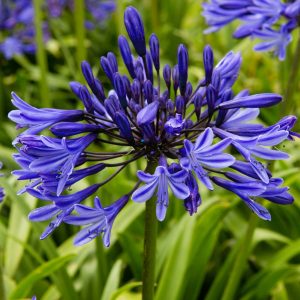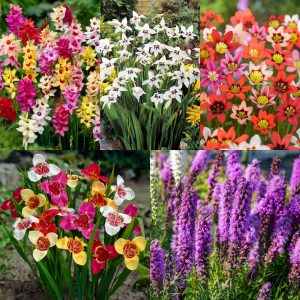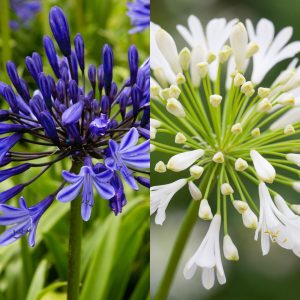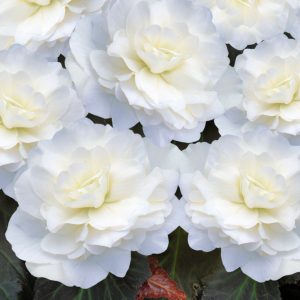Agapanthus Blue Triumphator Roots
£12.99 – £29.99
0 reviews
African Lily
- Agapanthus Blue Triumphator, commonly known as African Lily or Lily of the Nile is an easy to grow hardy deciduous herbaceous perennial cormous root that produces large round heads of trumpet shaped soft blue to violet flowers with darker purple striped markings. These flowering plants loved by pollinating insects, in particular bees and butterflies, will add interest to your garden during the Summer months of July to September. These upright growing, clump forming plants can reach to an height of between 100 and 120 cm.
- These bulbs are great for growing in flower beds, garden borders or in patio pots. Agapanthus look great when planted beside Roses, ornamental grasses and edible herbs. Further to this they are ideal for growing in coastal, cottage and low maintenance gardening schemes. They can be used as cut flowers allowing you to enjoy them in your home and garden. In colder areas, you can protect agapanthus with a heavy mulch around the root zone or move potted Agapanthus indoors, or cover the pot with horticultural fleece or mulch.
- If you are not ready to plant bulbs now, then store them in a cool, dry, frost free, well ventilated location. A garage, shed, loft or cupboard are ideal. Open the paper bag to allow air to circulate round but leave the bulbs in their bags until ready to plant. Just make sure mice or other rodents can’t get access to them. Keep an eye on your bulbs while in storage, if they are showing signs of going soft, it's best to get them planted before they deteriorate any further.
- These roots are on pre-order for dispatch Early February 2025.
-
Eventual Height
Between 100 and 120cm
-
Season of Interest
July to September
-
Light Required
Full sunlight
-
Watering
Moderate watering
-
Best Growing Conditions
Plant these roots in the Spring in fertile, well draining soil in a sheltered spot that receives full sunlight, between 2 to 5 cm deep and 4 to 6 cm apart, with the pointed end facing up and roots downwards. After planting, water well and water about once a week during the growing season. After flowering, cut the spent heads back at the base and remove any dead leaves at the base by hand.
















